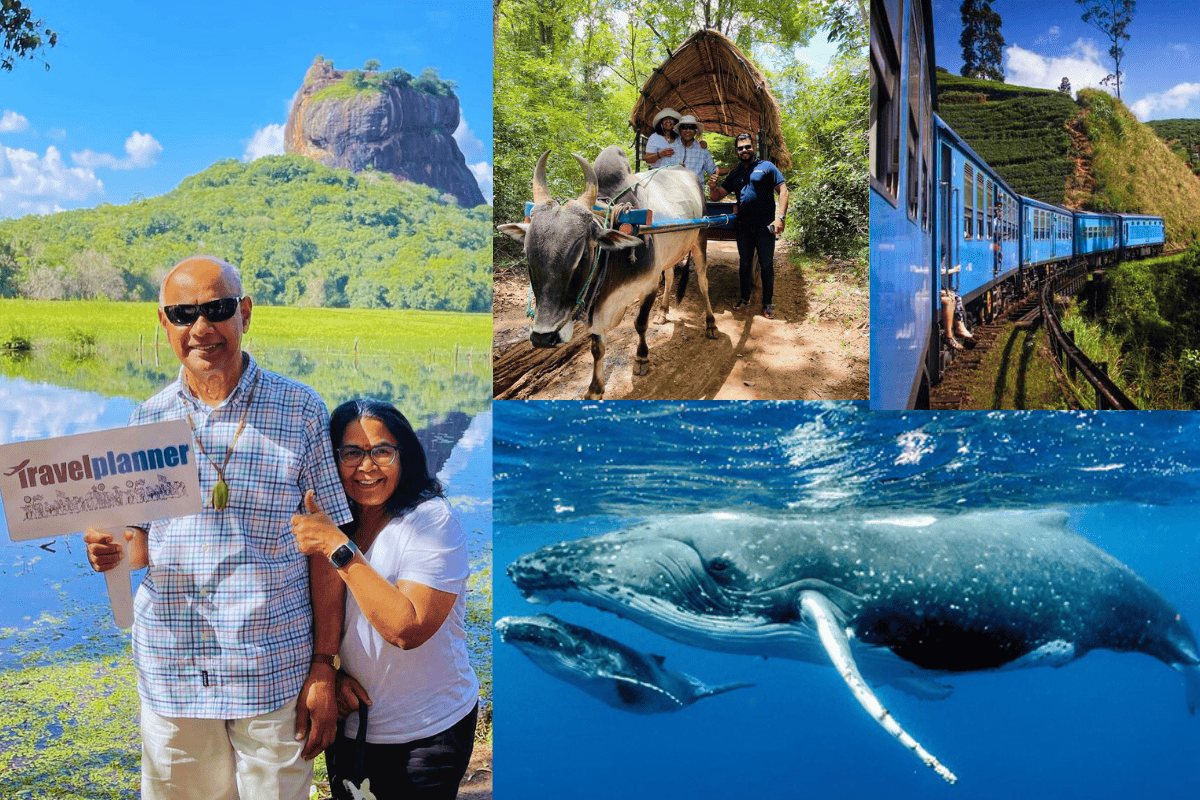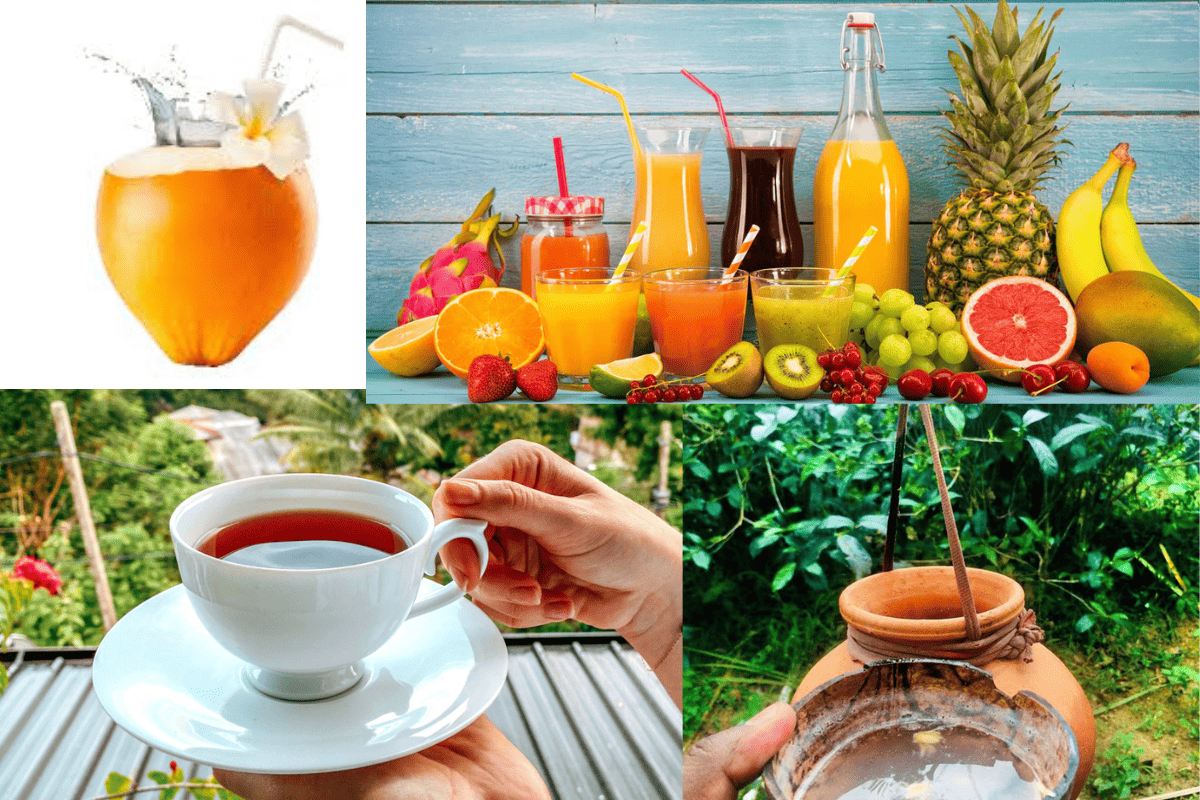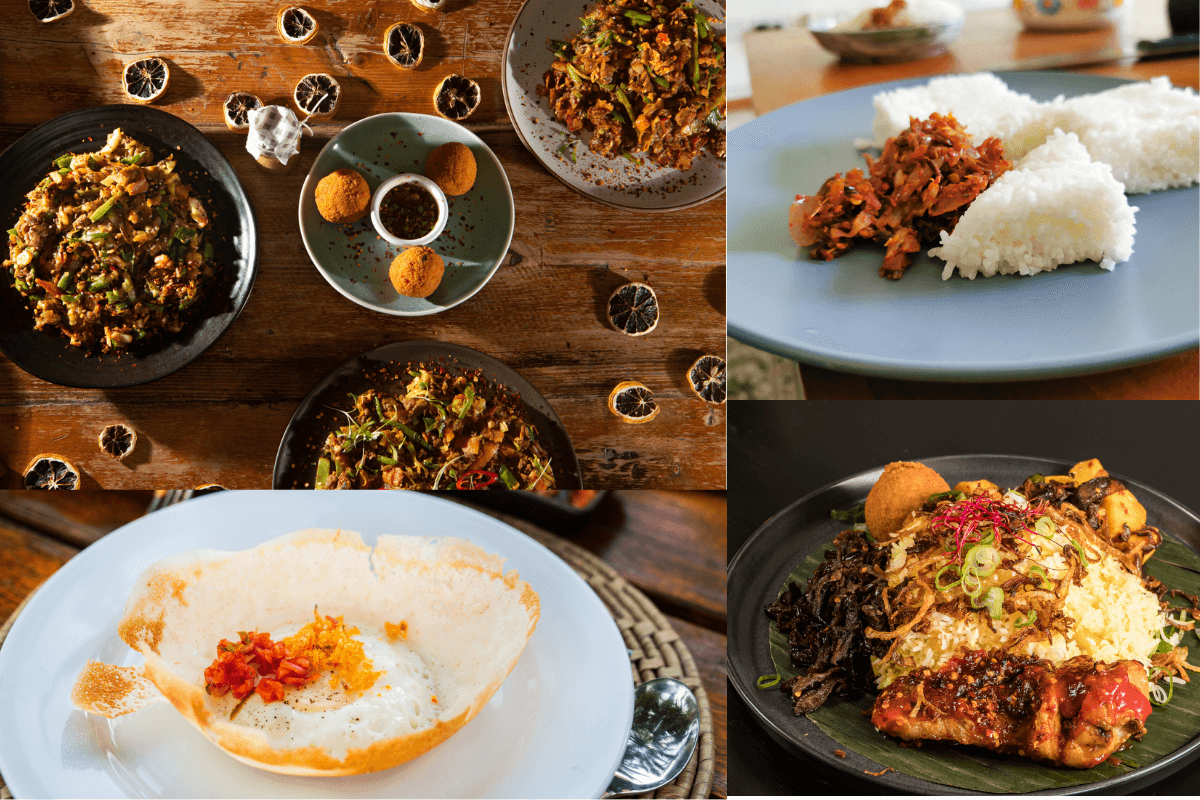Common Sinhala Phrases for Travelers: Guide to Sri Lanka’s Language and Culture
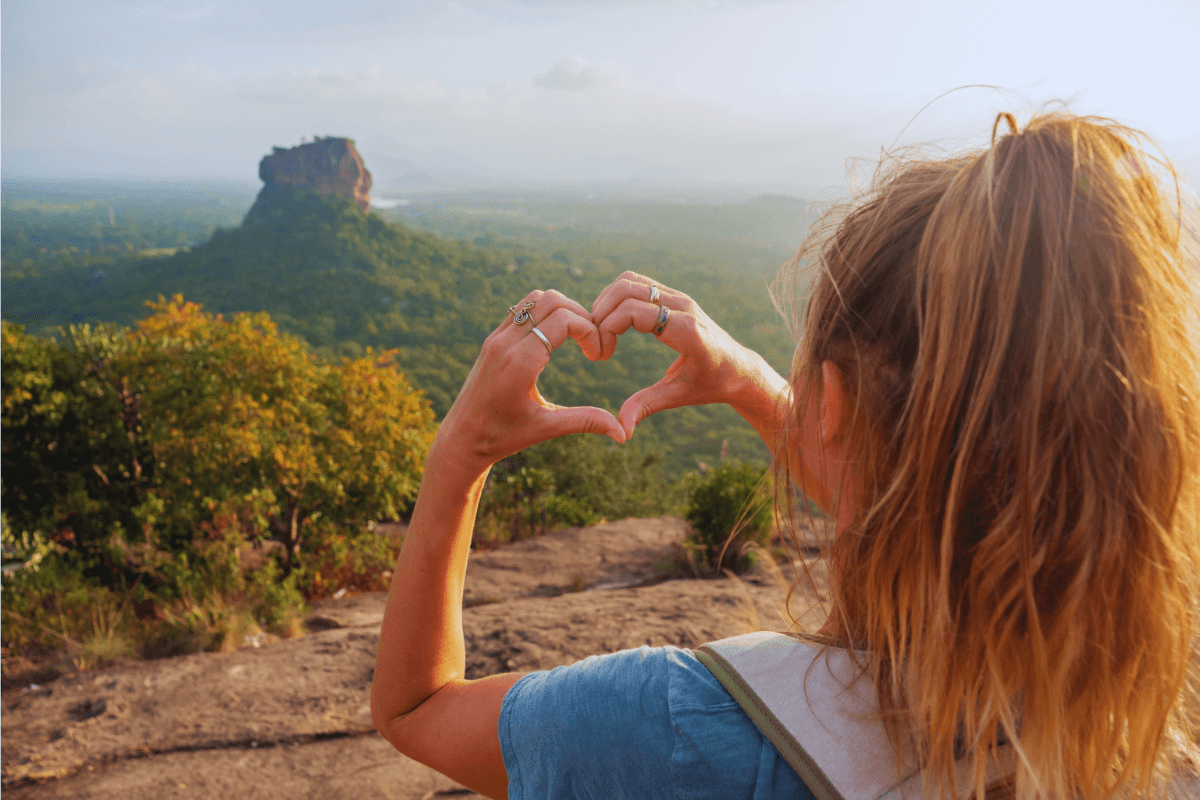
Sri Lanka is a well-known country for beautiful beaches, tea plantations, gardens, and friendly people. So many people around the world love to visit Sri Lanka for a holiday, and they plan trips around Sri Lanka in emergency visits also. If you are a first-time visitor or an experienced traveler, you could have known some Sinhala phrases for making your Journey an interesting one. Some locals speak English, and it will be better to learn Sinhala phrases for travelers are essential to connect with them.
Today’s article is about basic Sinhala phrases to enhance the Sri Lankan trip experience. Whether you visit the sacred temples, beautiful market areas, hill country landscapes, or crowded places with locals, these useful Sinhala phrases will help you communicate with everyone.
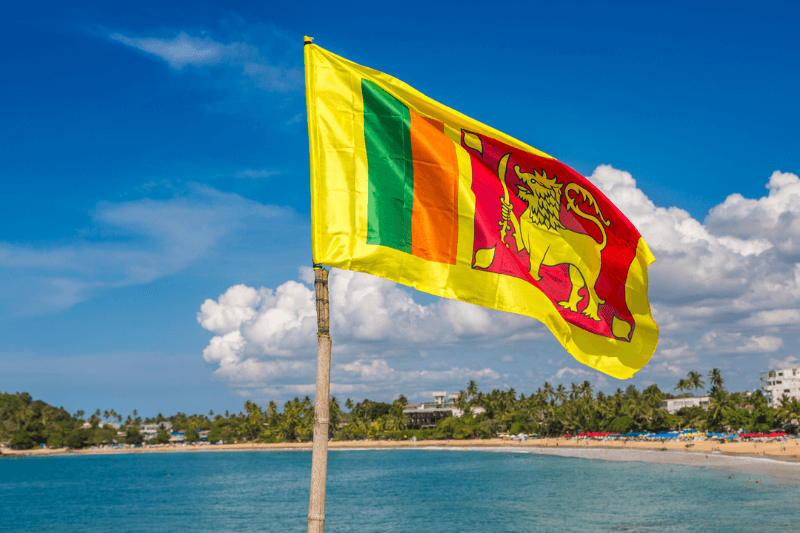
You can learn about short Sinhala phrases for tourists, long Sinhala phrases, Sinhala greeting phrases, and a good collection of Sinhala words for travelling. Master these basic Sinhala words for travelers, communicate with them, and understand how beautiful the Sri Lankans are. They are amazing humans who always try to help others, they have no matter whether they are foreigners or locals. That’s how they are. Their qualities are next level when it comes to hospitality.
Why Learn Sinhala Phrases for Travelers?
Sinhalese is spoken by 75% of the people in Sri Lanka. Most of Sri Lankans' mother tongue is Sinhala, and their second language is Tamil. Some Tamil people also speak Sinhala, and Sri Lankan Tamil differs slightly from Indian Tamil. Now, let’s see why you should learn and master basic Sinhala phrases as a tourist.
- You can get an idea about Sinhalese culture, rooted in Buddhist traditions and other Religions in Sri Lanka.
- Travelers can earn respect from locals because they can touch their hearts with their mother tongue.
- As a traveler and not knowing many things about Sri Lanka, if you want to get help or know about anything in emergency situations, these basic Sinhala words will make it easier.
- Easy to engage with locals whenever you go around Sri Lanka.
- The most useful way to improve communication with Sri Lankans.
- When locals see that you are making an effort to speak English, they will definitely build a good conversation with you with a smile, as they feel it very much.
- It will help to build a rapport with people you meet while visiting the best places in Sri Lanka.
- If you are visiting Sri Lanka for travel, doing research, learn about Sri Lankan culture, behaviors, beautiful Sri Lankan places, economic things, and very educational related information, conversations in Sinhala will be a good help for you.
- You can make remarkable memories with local people, and the smiles will always be on your face.
- You will understand why people worldwide admire this island, Sri Lankans' hospitality and why tourists return to Sri Lanka to experience the gorgeous paradise again and again.
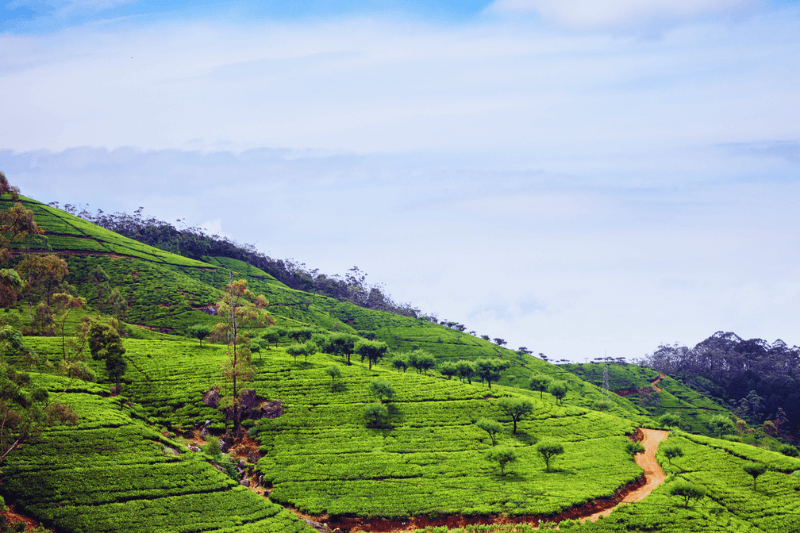
Sinhala Language Words for Greetings and Introductions
- Hello / May you live Long - Āyubovan
- Good morning- Subha udǣsanak
- Good Afternoon- Subha dahawalak
- Good Evening - Subha sandyāwak
- Good Night- Subha rāthriyak
- You- oyā
- I- mama
- Me-mata
- We- Api
- Pleased to meet you- Obawa Danaganna Læbīma sathutak
- What’s your name? -Oyage nama mokakda?
- My name is Rocky - Magē nama Rocky
- Where are you from? - Oya kohenda?
- See you later- Passe hambemu
- Good Bye- Ghilla ennam
- Good luck- Suba pathum
- Cheers ( Used when drinking) -Wāsanāwan
- Have a nice day- Suba dawasak
- Have a good journey- Suba gamanak wewā/ Gamana sathutin ghin enna.
- Triple Gem Bless you- Theruwan Saranai
- Be happy- Sathuin inna
- Nice to meet you- Oba hamuweema sathutak
- How's it going? - Mokada wennē?
- Take care- Parissamin
- Please- Karunākaralā
You can use these Sinhala greetings and introduction phrases to introduce yourself to people or build conversations while going through towns and villages with locals. People living in villages are very innocent, and some surprising things will happen.
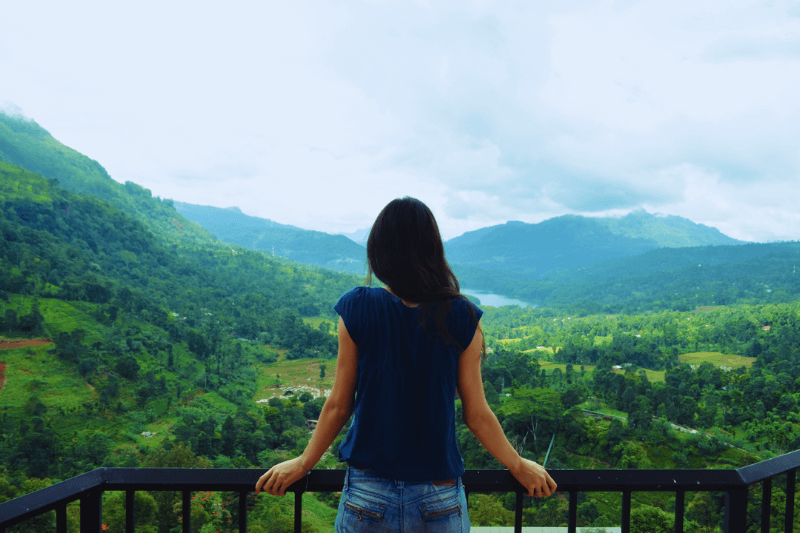
Basic Sinhala Phrases for Directions and Transportation
1. Where's the bus stop? - Bas næwathumapala Koheda?
2. Where’s the railway station? - Dumriya Næwathumpala Koheda?
3. Where are you going? - Oyā koheda yannē?
4. How do I get to the nearest beach? - Mama lagama thiyena beach ekata yanne kohomada?
5. Go straight - Kelin yanna
6. Turn left - Wamata harenna
7. Turn right - Dakunata harenna
8. Go straight - Kelinma yanna
9. Is it far? - Ēka thawa duraida?
10. Next to the shop - Kadēta eha paththen
11. Near the bank - Bankuwa laga
12. I got it the wrong way - Mata pāra waradila
13. Are buses going on this road? - Mē pārē bus yanawada?
14. Is this area safe at night? - Mē pradēshaya rāthri kāleta arakshithaida?
15. Can you speak English? - Oyāta English kathā karanna puluwada?
16. Where’s my room? - Mage kāmaraya koheda?
17. How much is this food? - Me kēma eke mila kiyada?
18. How much is the bus ticket? - Bas tikat eka kiyada?
These are very basic Sinhala phrases for travelers that can be used during their transportation and for finding the correct direction. If you cannot find where you are going and how to reach any places, you can use these basic Sinhala phrases to communicate with locals to request help.
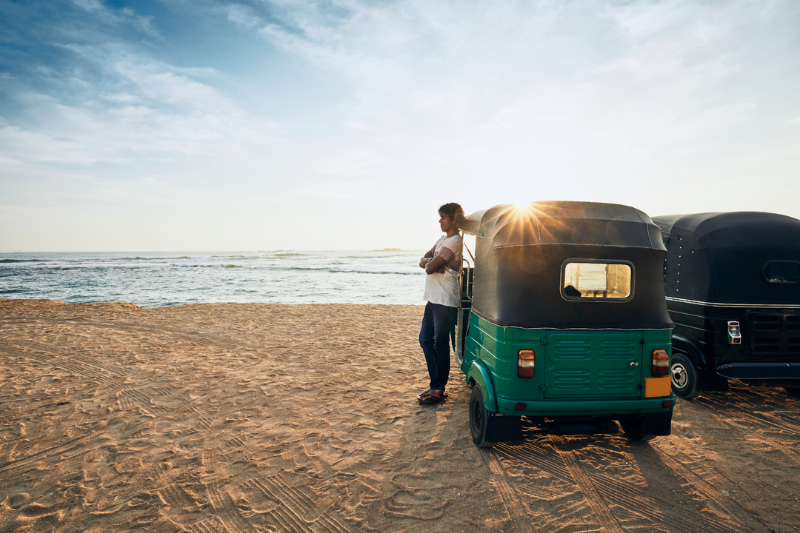
English Words/Phrases in Sinhala for Food and Dining
- I am hungry - Mata badagini
- I am thirsty - Mata thibahai
- What do you have for breakfast? - Udē kēmata monawada thyennē?
- What do you have for lunch? - Dawal kēmata monawada thiyennē?
- What do you have for dinner? - Rē kēmata monāda thiyennē?
- This is delicious - Mēka harima rasawath
- I am a vegetarian - Mama Nirmānsha kenek
- Can I have the menu? - Mata kēmawattoru thiyena menuwa denna puluwanda?
- Please give me water - Karunākarala mata wathura ekak denna
- Can I get the bill? - Mata bilpatha labāganna puluwanda?
- I have finished eating - Mama kālā iwarai
- Thank you for the food - Kēma walata sthuthyī
- Fresh food - Næwum kēma
- I don’t eat spicy food - Mama særa kēma kanne nǣ
- Could I please get the special today? - Ada dawasē thiyena honda kēma mata labāganna puluwanda?
- Can I get a table for two? - Dennekta mēsayak ganna puluwanda?
- Could you suggest something for me? - Obata puluwanda mata kanna yamak yojana karanna?
- I’m allergic to prawns and pineapple - Mata issoi annāsi alajik
- I would like to have a coffee - Mama kopi ekak bonna kemathī
- What are these foods made of? - Mē kēma monawagenda hadala thiyennē?
If you are planning a Sri Lankan tour in 2026, you should not miss the best Sri Lankan cuisine because there are unique Sri Lankan recipes that are made with fresh Sri Lankan spices with different delicious tastes. Egg hoppers, Rice and curry, Kottu, Lamprais, Spring Hoppers, Roti, Fish Ambul Thiyal, and many more. Learn these Sinhala phrases for travelers to communicate in restaurants, hotels, and public streets wherever you go.
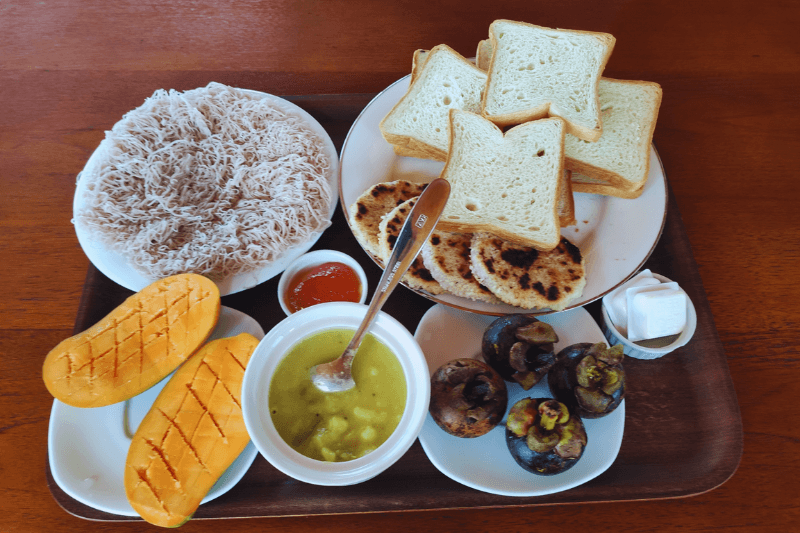
English Meanings of Sinhala Phrases Used for Shopping
- How much is this? - Mēka kīyada?
- I'm looking for a restaurant - Mama restaurant ekak hoyanawā
- Too expensive - Ēka ganan
- It is cheap - Ēka lābai
- Can you reduce the price? - Oyata gāna adu karanna pluwanda?
- Can I have a discount for these? - Mata mēwata wattamak denawada?
- Can I pay with my credit card? - Mama mage credit card eken gewannada?
- Do you have this in a large size - Mēkē loku size nadda?
- Do you have this in another color? - Mēkē wena patak nadda?
- Where's the kids' section? - Podi lamainge dewal thiyenne koheda?
- Where's the fitting room? - Adum adaganna kāmaraya koheda?
- Where can I find local products? - Oyālage ratē nishpādana ganna puluwan kohenda?
- I need a bag - Mata bǣg ekak onē
- I don’t have change - Mama laga maru salli nǣ
- I’m just looking - Mama nikan baluwa witharai
- I’ll buy this - Mama mēka gannawā
- I don’t want it - Mata eka one nǣ
- How much is one kilo of rice - Hal kilo ekak kīyada?
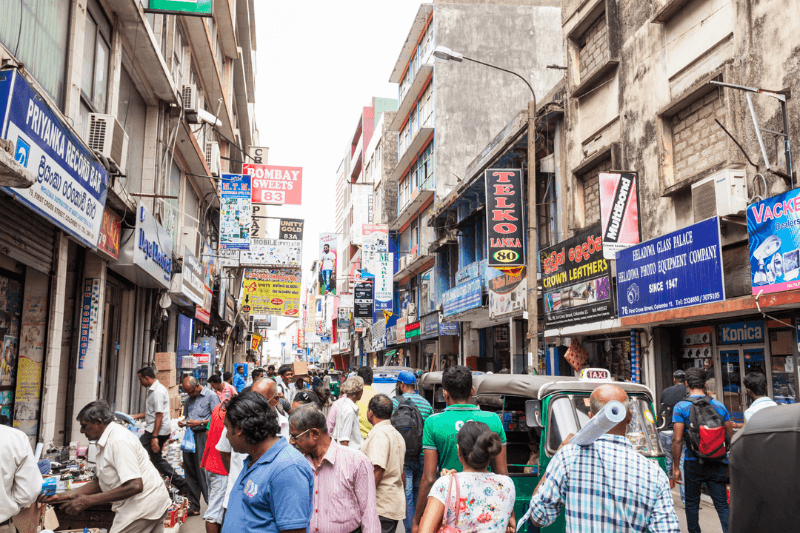
All these Sinhala phrases for travelers to use while they are shopping, going to supermarkets, and vegetable shops to buy groceries, goods, food, medicines, and other useful things. You can use a very polite way to get help and find the things you want to buy.
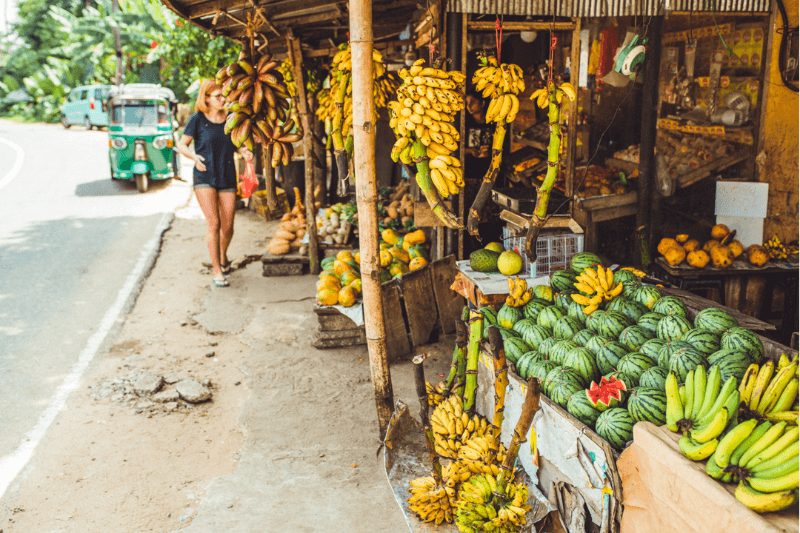
At the end of the year, most people have a vacation, and if you prefer planning a trip to Sri Lanka for going on safari tours, train rides, visiting temples, swimming on beaches, and hiking mountains, click the button below. You have nothing to worry about because we are planning everything for you as per your wish, for an affordable price range.
Sinhala Language Words for Emergencies
- Help - Udaw karanna
- Where’s the hospital?- Rohala koheda thiyennē?
- I want to meet a doctor - Mata dokta kenek hambenna onē
- I’m lost - Mata magǣrila
- I feel sick - Mata una wagē
- There’s a fire - Ginnak
- I’ve been robbed - Mata sorakamak welā
- Is it safe here? - Methana ārakshithada?
- I need help immediately - Mata ikmanin udaw onē
- Call police - Polīsiyata katha karanna
These are the most essential Sinhala phrases for tourists to use in different emergency situations to find solutions to their problems. But you needn’t worry if you choose any group tours on your vacation because our expert tour guides will show you how to behave in Sri Lanka, what the dos and don'ts Sri Lanka, how to be friendly with locals and other needed things meke you comfortable in your journey.
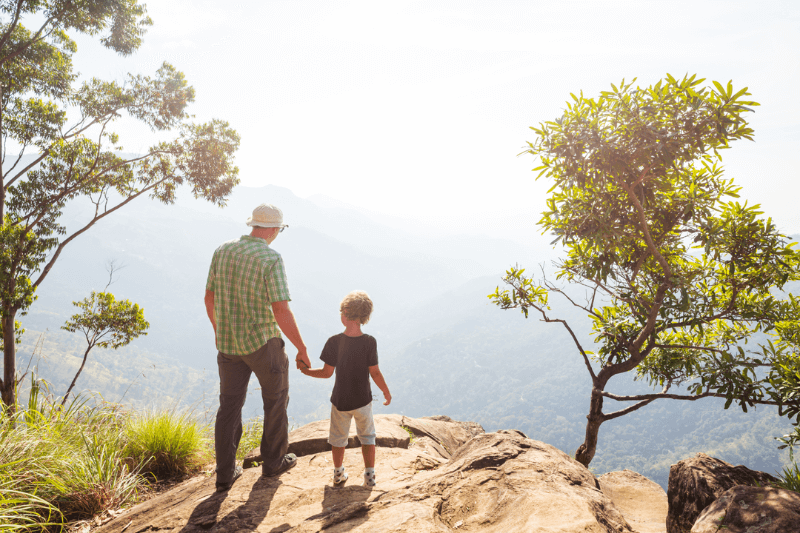
Sinhala Phrases for Asking Help
- Can you help me? - Oyata puluwanda mata udaw karanna?
- Who are you? - Oya koheda?
- Where are you going? - Oya kohed yannē?
- What are you selling? - Oya monawada wikunannē?
- Is it far from here? - Methana idan duraida?
- Can I take a photo? - Mata pinthurayak ganna puluwanda?
- Why is this happening? - Ei mehema wennē?
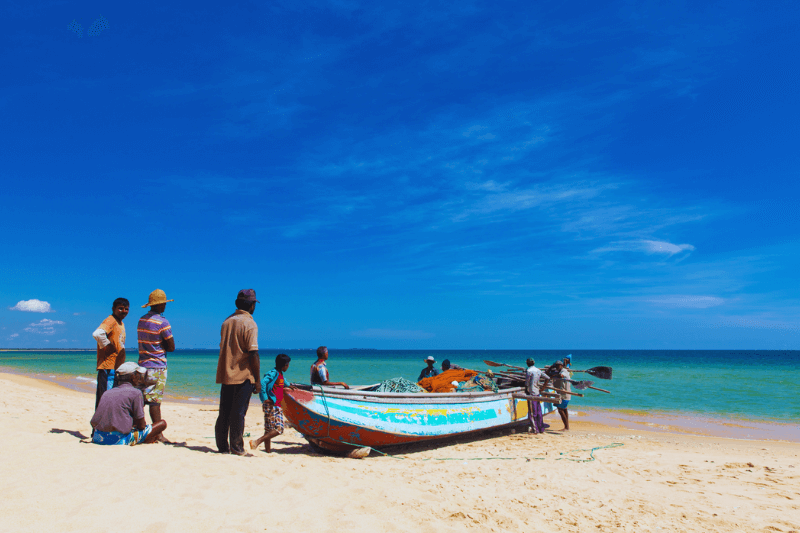
Sinhala Question Words
- What? - Mokakda?
- When? - Kawdda?/ Kīyatda?
- Where - Koheda?
- How?- Kohomada?
- How much?- Gāna kīyada?
- Can? - Puluwanda?
- Who is that? - Ē kawda?
- How is it? - Ēka kohomda?
- Why this - Ei mēka?
- Is there a knife? - Pihiyak thiyenawada?
- Whose? -Kāgeda?
- Who? - Kawda?
These Sinhala question words, and phrases are very useful to talk with locals while you are travelling to find some information. Better learning these common Sinhala words, as always, they are essential in most conversations with locals.
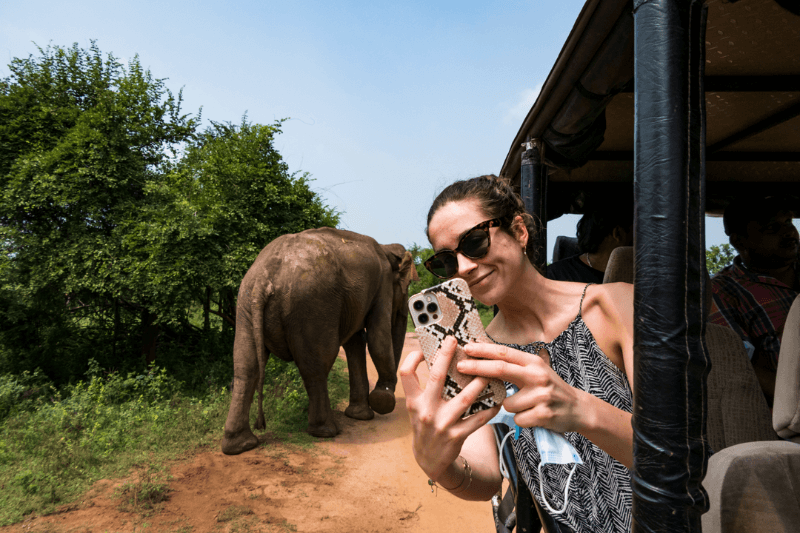
Sinhala Words for Numbers
- One - Eka
- Two - Deka
- Three - Thuna
- Four - Hathara
- Five - Paha
- Six - Haya
- Seven - Hatha
- Eight - Ata
- Nine - Nawaya
- Ten - Dahaya
- Eleven - Ekolaha
- Twelve - Dolaha
- Thirteen - Dahathuna
- Fourteen - Dāhathara
- Fifteen - Pahalowa
- Sixteen - Dāhasaya
- Seventeen - Dāhatha
- Eighteen - Daha ata
- Nineteen - Daha nawaya
- Twenty - Wissa
- Thirty - Thiha
- Forty - Hathaliha
- Fifty - Panaha
- Sixty - Hata
- Seventy - Haththewa
- Eighty - Asūwa
- Ninety - Anūwa
- Hundred - Sīya
- Five Hundred - Pansīya
- Thousand - Dahasa
- Twenty-one - Wisi Eka
- One hundred and twenty-five - Ekasiya wisi paha
Numbers are another important thing to know as a tourist. If you learn these Sinhala words for numbers, it will definitely help you everywhere you go in Sri Lanka, especially while shopping. Our travel guides will also provide knowledge of a few Sinhala phrases while showcasing the beauty of Sri Lanka in your day tours or private tours.
Now, let’s see what tips you can use to learn basic Sinhala words.
Practical Tips for Communicating and Learn Sinhala Phrases for Travelers
- Try to learn Sinhala phrases rather than learning Sinhala words because it will be easier for you to practice quickly and helpful during day-to-day activities.
- Focus on learning the most common Sinhala Phrases first.
- Simply keep the sentence structure and use Subject-Object-Verb order in Sinhala. “ I drink coffee” - Mama bath kanawa.
- Try to choose keywords and polite expressions. Knowing a few common nouns and very polite phrases will make every situation comfortable with locals.
- Practice the correct Sinhala pronunciation.
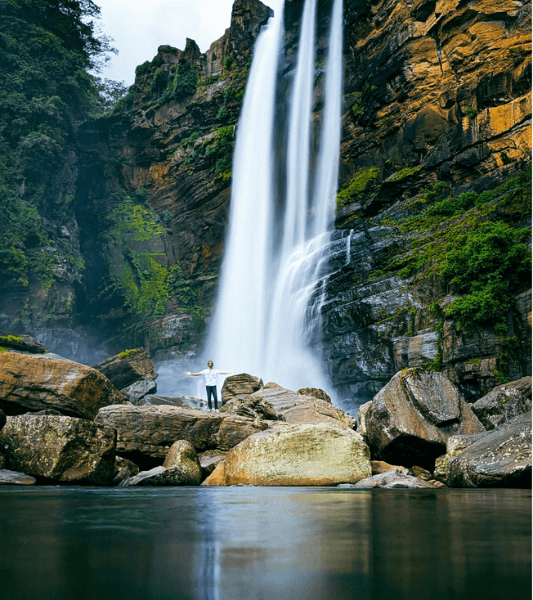
Conclusion
This article is for all travelers around the world who are planning their next trip to Sri Lanka. Learn common Sinhala phrases for travelers to improve knowledge about Sri Lankan culture and people. Most of the Sri Lankans, even some of the very old locals in city areas, are able to speak in English. With only English, you will also be able to manage your tour. But these Sinhala Phrases will help to make a good connection with locals. They are very nice people and will treat you well in Sri Lanka.
So try to learn the English meaning of Sinhala words, useful Sinhala phrases for use while you are going to the market, restaurants, in transportation, or booking accommodations. This comprehensive guide of Sinhala Phrases for tourists is prepared with our experience. So, don’t be late to see the elephants, villages, and the magical island beauty make your next vacation the most excited one.
FAQs About Sinhala Phrases for Tourists
How to Learn Sinhala for Tourists with Ease?
You can follow very basic Sinhala phrases first with two or three words. Then you can improve your pronunciation. After that, you can move on to learn the Sinhala Language.
Can We Learn Basic Sinhala Phrases within a Short Time?
Yes. Within a short time, you can practise Sinhala phrases and how to pronounce them. Start learning phrases before learning Sinhala words and Sinhala to English translations.
How Do You Greet Someone in Sinhalese?
If you don’t know how to say Hello in Sinhala, say Āyubowan. This is the best greeting method for Sinhalese. In the morning, you can say Suba udǣsanak also.
What is the Meaning of Bohoma Sthuthi?
Bohoma Sthuthi means Thank you so much.
Can You Say Namasthe in Sri Lanka?
No. You can’t say Namasthe in Sri Lanka. It's a Hindi word of greeting. Sri Lanka is not a part of India. It's an island and is separated from India. In Sinhala, you can say “Āyubowan”, and for Tamil People, you can say “Vanakkam”.
What is the Meaning of “Enna Hari”?
“Enna Hari” means Okay, come, will you, or It’s alright.
What is Kokis in Sinhala?
Kokis is a Sinhalese food which is prepared for the Sinhala and Tamil New Year. It's a crispy, coloured food item prepared using rice flour and coconut milk.

